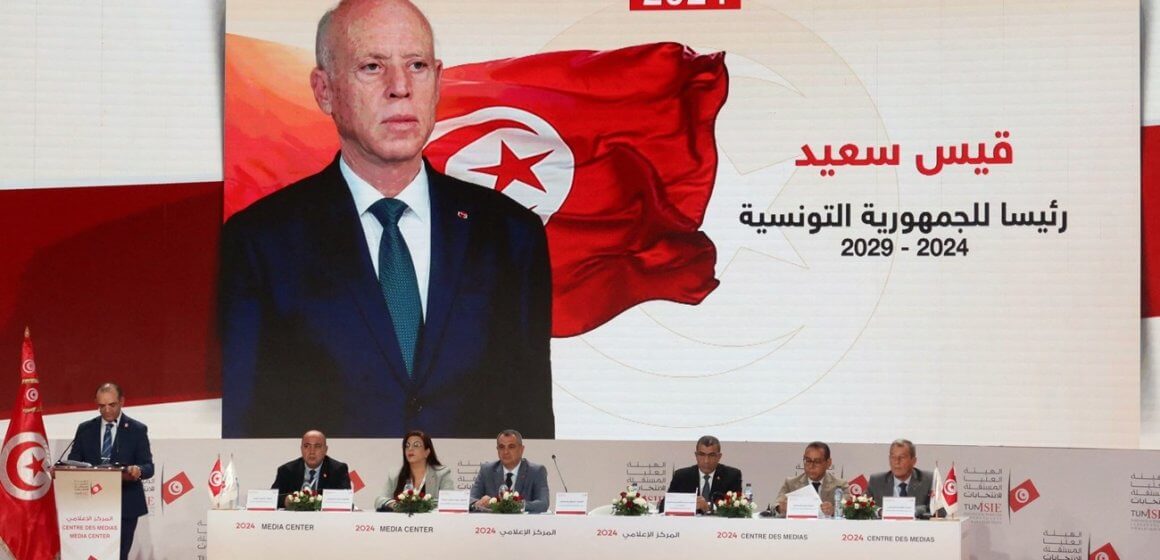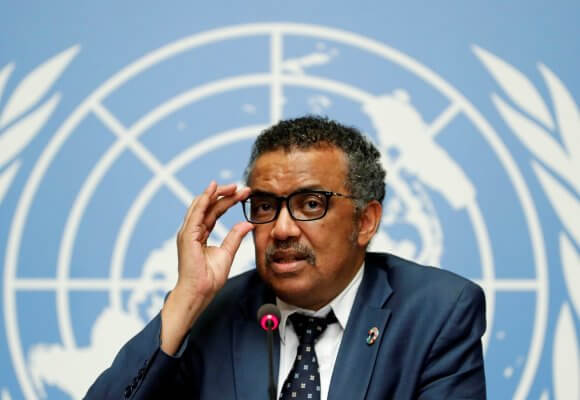|
LISTEN TO THIS THE AFRICANA VOICE ARTICLE NOW
Getting your Trinity Audio player ready...
|
Tunisia’s President, Kais Saied, Tuesday secured a second term in office with an overwhelming 90% of the vote, despite mounting criticism from rights groups over the conduct of the election. The Independent High Authority for Elections (ISIE) confirmed Saied’s victory in what many observers have described as a tightly controlled election with limited competition and low voter turnout.
The election, held on Sunday, saw only 29% of the more than nine million registered voters participate—a sharp indication of growing political apathy in a country once hailed as a beacon of democracy in the Arab world. Out of more than a dozen potential candidates, only two were allowed to stand against Saied. This, coupled with the absence of campaign rallies, public debates, and a visible dominance of pro-Saied posters in the streets, raised concerns about the fairness of the election.
Saied’s re-election had been widely anticipated, given the repressive measures taken by his government in the months leading up to the vote. Authorities arrested several dissidents and potential challengers, including Ayachi Zammel, one of the two candidates on the ballot. Zammel, a businessman, was sentenced to 12 years in prison for falsifying documents just five days before the poll, yet still managed to secure 7% of the vote. The third candidate, Zouhair Maghzaoui, received a mere 2%.
Rights groups such as Amnesty International have condemned what they describe as a “worrying decline in fundamental rights” under Saied’s leadership. They pointed to the arrests of political opponents, the dismantling of democratic institutions, and the president’s growing concentration of power as alarming indicators of Tunisia’s backslide into authoritarianism. Saied, who was initially elected in 2019 on a wave of optimism following the country’s 2011 revolution, has gradually consolidated power by suspending parliament, rewriting the constitution, and ruling by decree.
Once considered the success story of the Arab Spring, Tunisia had gained international praise for its democratic progress after the 2011 ousting of long-time dictator Zine El Abidine Ben Ali. Ben Ali’s 23-year reign ended in a popular uprising that inspired similar movements across the Arab world, known as the Arab Spring. Tunisia was the only country in the region to emerge with a functioning democracy after these uprisings, giving hope for a new era of freedom and governance in the Middle East and North Africa.
However, Saied’s tenure has steadily eroded that hope. After his election in 2019, the 66-year-old president moved to centralize power, sidelining parliament and implementing a new constitution that critics say gives him unchecked authority. His supporters, however, argue that these moves were necessary to root out corruption and eliminate a “corrupt elite” that had dominated Tunisia’s post-revolution politics.
Five major political parties had called for a boycott of the recent election, fearing it would not be free or fair. Their concerns seemed validated by the minimal political competition and the limited voter participation. The final results are expected to be announced next month, but with such a large lead, Saied’s victory appears inevitable.
Saied has continued to reject criticism, insisting that his reforms are aimed at saving Tunisia from economic ruin and dismantling a political system he claims is rife with corruption. He has dismissed accusations of authoritarianism, instead portraying himself as a leader fighting against treachery within the political class.
Sunday’s election marked Tunisia’s third presidential election since the fall of Ben Ali in 2011. While the country had been praised for making strides toward a fully functioning democracy, the recent political developments under Saied have left many questioning the future of democracy in the nation that once sparked hope across the Arab world.











LEAVE A COMMENT
You must be logged in to post a comment.